Industry Issues
S. 3283 (Joint CLA and RISE statement)
Pesticides play an important role in protecting public health, improving the sustainability of our food supply, and mitigating climate change. The Federal Insecticide, Fungicide, and Rodenticide Act (FIFRA) is the global gold standard in the regulation of pesticides because it establishes a rigorous scientific foundation to balance the risks and benefits of every pesticide on the market today. Legislation seeking to ban individual chemistries and politicize the regulatory process undermines both the work of the U.S. Environmental Protection Agency’s career scientists and a long-standing law that serves our nation well.
Climate
CropLife America recognizes the impacts of climate change and the crucial role pesticides play to address this challenge. Sustainable agriculture, made possible by pesticides, is essential to preventing deforestation, sequestering greenhouse gases, and preserving native habitat. Innovative pesticide products are key to unlocking and expanding the enormous climate-mitigation potential of agriculture. We support efforts to develop the most effective and precise solutions to pest challenges while protecting our environment and biodiversity.
Defense of Risk-Based Regulation
Industry supports U.S. Environmental Protection Agency’s regulation of pesticides that is based on sound science, transparency, and stakeholder engagement as codified in the Federal Insecticide, Fungicide, and Rodenticide Act (FIFRA). Preservation of the Federal Insecticide, Fungicide and Rodenticide Act (FIFRA), bolstered by the Food Quality Protection Act, and a fully funded Office of Pesticide Programs will ensure protection of human health and the environment. It is more important than ever to build public faith, trust and confidence in the pesticide registration process.
EPA Transparency and Communication
CLA supports greater EPA transparency and clarity regarding decisions on pesticide registration and review. The registration and regulation of pesticides is scientifically complex, particularly in the assessments of toxicity, exposure and risks. EPA must clearly and effectively communicate its decisions with the public to promote greater trust in the agency and pesticide products.
FIFRA/ESA
CropLife America and its members have long sought an approach to endangered species review of pesticide products that all involved government agencies can agree to, that protects threatened and endangered species, while allowing agriculture and other pesticide uses to continue, as appropriate, following the review. We support a robust stakeholder process to build consensus around, and sufficient resources to implement, a better process to protect species and provide growers the tools they need.
Statement on EPA Announcement on ESA Process for new AI registrations (January 11, 2022)
The EPA’s announcement today of a new general policy addressing the intersection of the Federal Insecticide Fungicide and Rodenticide Act (FIFRA) with the Endangered Species Act (ESA) is an important step forward in protecting threatened and endangered species, ensuring farmers have needed tools for managing pests, and providing regulatory certainty for pesticide manufacturers and distributors.
CropLife America and its members have been working with environmental organizations, farm groups, and federal agencies to build consensus around a better process that accomplishes these objectives. Today’s announcement, however, is just a first step. The EPA, the Fish & Wildlife Service, and the National Marine Fisheries Service need the resources—both funding and staff—to help ensure that pesticide registrations, including consultations, are both timely and legally defensible.
International Engagement
CropLife America supports EPA’s increased international engagement to promote and defend the United States’ risk-based regulation of pesticides. It is critically important for EPA to reassert its leadership role in the regulation of pesticides internationally, through active and robust participation in international organizations.
Mexico Decree
Mexico has been, and remains, a valuable trading partner and member of the United States Mexico Canada (USMCA) free trade agreement. CropLife America (CLA) is concerned, however, that the Mexican government’s most recent regulatory decree—banning the use, distribution, and importation of glyphosate by January 2024—sets a dangerous precedent.
The decree, announced in December 2020 and published in February 2023, is not based on a comprehensive risk assessment, ignoring the clear weight of scientific evidence and the reviews of regulatory bodies around the world, including the E.U., Canada, U.S. and many others. The Mexican government also ignored public comments from the Mexican grower community that spoke to the devastating impact the ban would have on agriculture in Mexico. The decree not only threatens this important trading partnership, but also undermines the integrity of scientific standards as the foundation for global trade.
Maximum Residue Limits
CropLife America supports a science-based global standard for the implementation of Maximum Residue Levels (MRL). There currently is no global standard for the implementation of MRLs, leading to trade inequities and barriers. These inconsistencies impact farmers’ abilities to grow food.. The creation and adherence to global standards and decisions for pesticide residues on food products is a necessity for a safe and reliable food supply. We support global science and standards that uphold consumer and crop safety and promote fair trade practices for imports and exports.
Neonicotinoids
As farmers grow their crops, neonicotinoids are an effective tool to protect against pest threats throughout the growing season. Neonicotinoids are just one tool farmers use as they take an integrated approach to pest management. This approach allows growers to reduce reliance on pesticides, using them only when and where necessary and in the smallest amounts possible. Based on various conclusive studies performed around the world, neonicotinoids are proven to be effective in controlling harmful insects in agricultural and non-agricultural settings with no unreasonable adverse effects on non-target organisms when used according to label instructions.
Pesticide Registration Improvement Act
Consumers expect effective regulation of pesticide products used on farms, homes, and businesses. To achieve this, pesticide manufacturers support EPA’s work through registration fees established under the Pesticide Registration Improvement Act (PRIA). This important legislation is backed by a coalition of diverse groups that include agriculture and environmental NGOs. PRIA registration fees ensure that the Agency is sufficiently funded to carry out its regulatory activities, including funds for worker training and education, as well as state regulatory responsibilities.
Support of EPA
CropLife America supports full funding of EPA’s Office of Pesticide Programs (OPP) and the adoption of more transparent and efficient processes for pesticide registration. CLA understands that the EPA must have the resources—both staff and funding—needed to carry out its mission.
Worker Protection
CropLife America applauds the Biden Administration’s focus on environmental justice, and fully supports the need to protect the safety and well-being of agricultural workers. EPA-approved labels for registered pesticides include use directions, as well as hazard and precautionary statements and first aid information to protect pesticide applicators, including agricultural workers. We seek to work with the EPA to promote better education and training that can improve worker safety.
